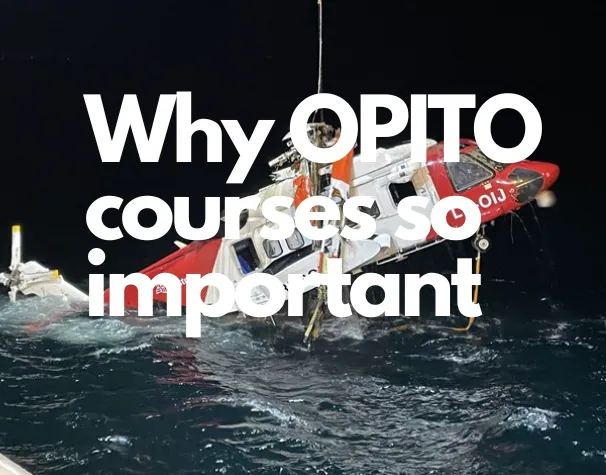Why OPITO Courses are Your Lifeline in the Offshore Industry
Imagine this: you’re working on a remote offshore platform, miles from land. Alarms blare, signaling an emergency. Do you know what to do? In the high-pressure world of offshore oil and gas, having the right training can mean the difference between life and death. Enter OPITO (Offshore Petroleum Industry Training Organization), a global leader in safety and competency training for the offshore workforce.
Their internationally recognized courses equip workers with the critical knowledge and practical skills to navigate various emergencies, making them lifelines in this demanding industry.
Real-Life Scenarios Highlighting the Importance of OPITO Training:
- North Sea Helicopter Ditching (2009): A helicopter carrying 18 oil rig workers ditched into the North Sea. Thankfully, all 18 passengers survived due to effective emergency response training, including lessons learned from OPITO courses on helicopter underwater escape training (HUET) and emergency response procedures.
- Gulf of Mexico Blowout (2010): The Deepwater Horizon drilling rig exploded, causing the worst environmental disaster in U.S. history. The incident highlighted the importance of well control training, an essential part of the OPITO Well Control program. This program equips personnel with the knowledge and skills to prevent and respond to wellbore emergencies, minimizing environmental impact and ensuring crew safety.
These are just a few examples of how OPITO training makes a real difference in the field. The courses cover a wide range of essential topics, including:
- Emergency response procedures: Learn how to react effectively to various emergencies like fires, explosions, and medical situations.
- Survival at sea: Gain practical skills like using life rafts, personal flotation devices, and signaling for help.
- Working at height: Understand the risks and safety measures involved in working on elevated platforms.
- H2S safety: Recognize the dangers of H2S exposure and know the proper protocols for handling leaks.
Beyond these examples, OPITO offers a wide range of essential courses for various roles in the offshore industry, including:
- Mandatory Minimum Training (MMT): This basic safety training is mandatory for all offshore personnel, regardless of their role. It covers essential topics like emergency response, sea survival, and first aid.
- Basic Offshore Safety Induction and Emergency Training (BOSIET): This course builds upon the MMT, providing more in-depth training on survival techniques, firefighting, and helicopter underwater escape procedures. It is required for most offshore personnel.
- HUET (Helicopter Underwater Escape Training): This practical training program equips personnel with the skills to escape a submerged helicopter safely. It is mandatory for personnel who travel to offshore installations by helicopter.
- Advanced Rigging and Lifting Operations: This course teaches personnel how to safely lift and move heavy equipment, a critical skill for many offshore jobs.
Organizations Providing OPITO Courses Worldwide:
- Global Wind Organisation (GWO): A non-profit organization offering OPITO-approved training programs worldwide.
- Falck Safety Services: A leading provider of safety and training solutions, including OPITO courses, with locations globally.
- PetroSkills: Offers a comprehensive range of OPITO-approved training programs in the Americas, Europe, Asia, Africa, and Australia.
Investing in OPITO training is an investment in your safety and career.
By equipping yourself with the necessary knowledge and skills, you can contribute to a safer work environment for yourself and your colleagues, while increasing your employability and career prospects in the offshore industry.
